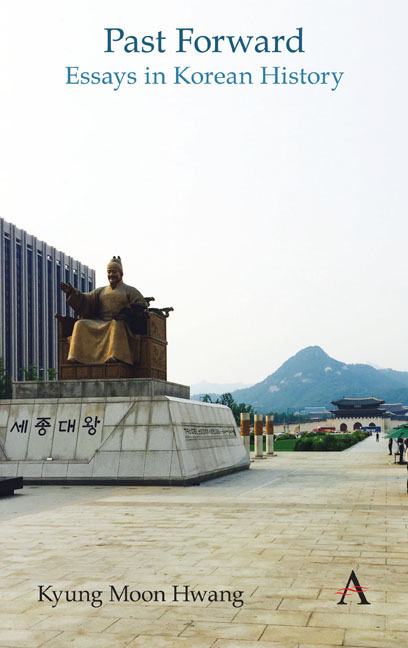Book contents
- Frontmatter
- Contents
- List of Figures
- Foreword
- Chronologies of Korean History
- Themes
- Acknowledgments
- Note on Romanization and Spelling
- Part I Circulating History
- Part II Durable Traditions
- Part III Ancient Remains
- Part IV Dynastic Depths
- Part V Modern Origins
- 24 Jungin, Forerunners to Professionals
- 25 1894, a Signal Year
- 26 Great Korean Empire
- 27 March First Independence Movement
- 28 The Politics of Disease
- 29 Korean Universities
- Part VI Challenges of Nationhood
- Part VII History Makers
- Part VIII External Presences
- Part IX Trials of Modernization
- Part X Gripped by the Past
- Index
28 - The Politics of Disease
from Part V - Modern Origins
- Frontmatter
- Contents
- List of Figures
- Foreword
- Chronologies of Korean History
- Themes
- Acknowledgments
- Note on Romanization and Spelling
- Part I Circulating History
- Part II Durable Traditions
- Part III Ancient Remains
- Part IV Dynastic Depths
- Part V Modern Origins
- 24 Jungin, Forerunners to Professionals
- 25 1894, a Signal Year
- 26 Great Korean Empire
- 27 March First Independence Movement
- 28 The Politics of Disease
- 29 Korean Universities
- Part VI Challenges of Nationhood
- Part VII History Makers
- Part VIII External Presences
- Part IX Trials of Modernization
- Part X Gripped by the Past
- Index
Summary
The anxious public response to the South Korean government's handling of the Middle East Respiratory Syndrome (MERS) outbreak in 2015 reminded us that South Koreans, like most people around the world, assume several things. First, they expect the government, or the state, to take responsibility for controlling infectious diseases. Second, they believe that only the government can undertake such an assignment, because it requires enormous resources as well as the power to restrict people's movement and behavior. Despite the advanced bureaucratic management of medicine during the Joseon dynasty, such public expectations formed mostly in the modern era.
And this gets us to the third major assumption that citizens hold in the face of an epidemic: The legitimacy of the government, especially its leadership, rests on how well it performs in containing or preventing damage. This is why the state response in these circumstances easily becomes politicized. There is, of course, a compelling history behind all this—not only of the state's public health and disease control measures, but also of the relationship between this administrative performance and political legitimacy. To illustrate, we can focus on two pioneering medical scientists who also happened to work for the government.
The first is Ji Seog-yeong, of the late nineteenth to early twentieth centuries. Ji has traditionally been credited as the first Korean to devise, apply and propagate vaccination treatments for smallpox. He was trained in techniques introduced by foreigners in Korea, especially the Japanese in Busan in the 1880s and 1890s. And as a county magistrate in the Busan area in the mid-1890s, he further developed and implemented these treatments.
By then Ji's activities were part of a larger push by the Korean government, beginning with the Gabo Reforms of 1894–1895, to establish a scientific disease-control system. The first major test came in the summer of 1895, as an outbreak of cholera, in the wake of the Sino-Japanese War in northern Korea, began to ravage that region and started to head south toward the capital. The Korean government hurriedly mobilized central and local officials, including the police, as well as doctors and foreign advisors, to contain the disease's destructive impact.
- Type
- Chapter
- Information
- Past ForwardEssays in Korean History, pp. 82 - 84Publisher: Anthem PressPrint publication year: 2019



